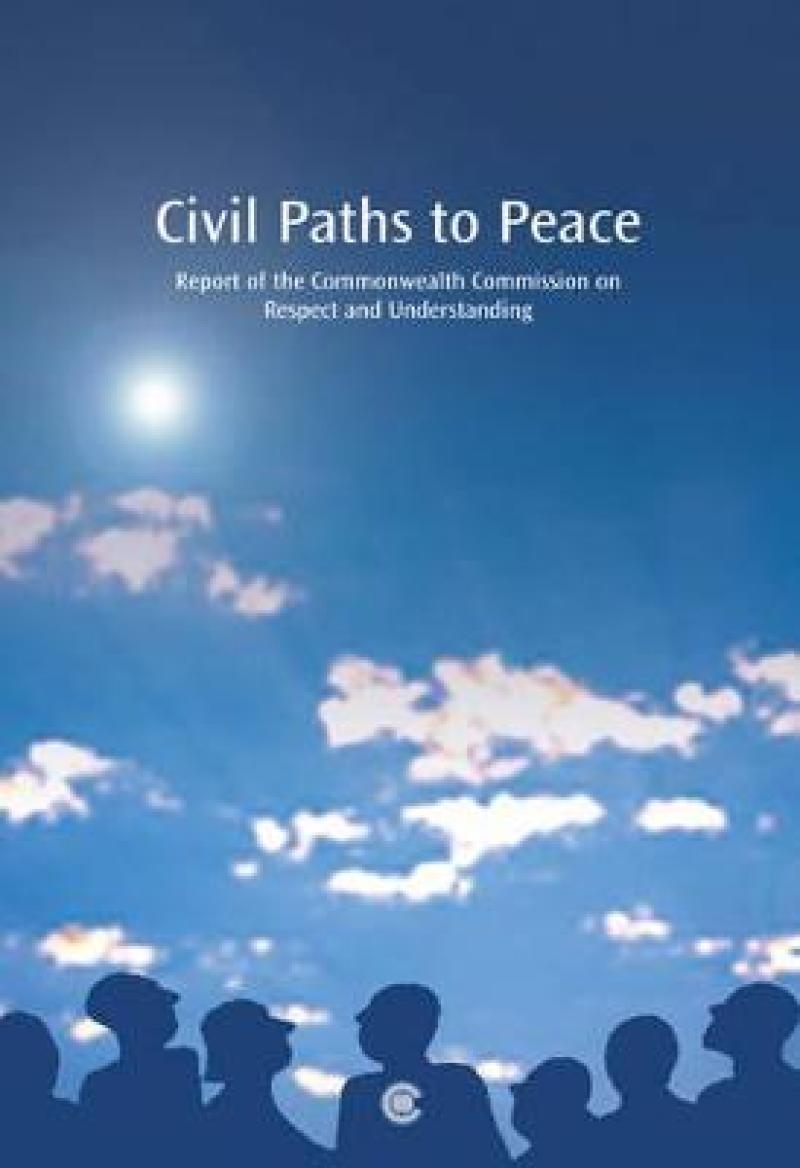Civil Paths to Peace contains the analyses and findings of the Commonwealth Commission on Respect and Understanding, established in response to the 2005 request of Commonwealth Heads of Government for the Commonwealth Secretary-General to 'explore initiatives to promote mutual understanding and respect among all faiths and communities in the Commonwealth.' This report focuses particularly on the issues of terrorism, extremism, conflict and violence, which are much in ascendancy and afflict Commonwealth countries as well as the rest of the world. It argues that cultivating respect and understanding is both important in itself and consequential in reducing violence and terrorism. It further argues that cultivated violence is generated through fomenting disrespect and fostering confrontational misunderstandings. The report looks at the mechanisms through which violence is cultivated through advocacy and recruitment, and the pre-existing inequalities, deprivations and humiliations on which those advocacies draw. These diagnoses also clear the way for methods of countering disaffection and violence.
In various chapters the different connections are explored and examined to yield general policy recommendations. Accepting diversity, respecting all human beings, and understanding the richness of perspectives that people have are of great relevance for all Commonwealth countries, and for its 1.8 billion people. They are also importance for the rest of the world. The civil paths to peace are presented here for use both inside the Commonwealth and beyond its boundaries. The Commonwealth has survived and flourished, despite the hostilities associated with past colonial history, through the use of a number of far-sighted guiding principles. The Commission argues that those principles have continuing relevance today for the future of the Commonwealth - and also for the world at large.
Les mer
This report examines the issues of terrorism, extremism, conflict and violence, which are much in ascendancy and afflict Commonwealth countries as well as the rest of the world, and considers methods of countering disaffection and violence through civil means.
Les mer
Preface Letter of Presentation Executive Summary 1. Why do Respect and Understanding Matter? 2. The Nature and Nurture of Violence 3. Poverty, Inequality and Humiliation 4. History, Grievance and Conflict 5. Political Participation, Dialogue and Inclusion 6. The Role of Media and Communication 7. Young People and Education 8. Multilateralism and the International Order 9. The Way Forward and Conclusions References Appendix A. Members of the Commonwealth Commission on Respect and Understanding Appendix B. Written submission to the Commonwealth Commission on Respect and Understanding Appendix C. Bibliography
Les mer
Produktdetaljer
ISBN
9780850928709
Publisert
2008-03-01
Utgiver
Vendor
Commonwealth Secretariat
Høyde
240 mm
Bredde
165 mm
Aldersnivå
P, 06
Språk
Product language
Engelsk
Format
Product format
Heftet
Antall sider
96
Foreword by
